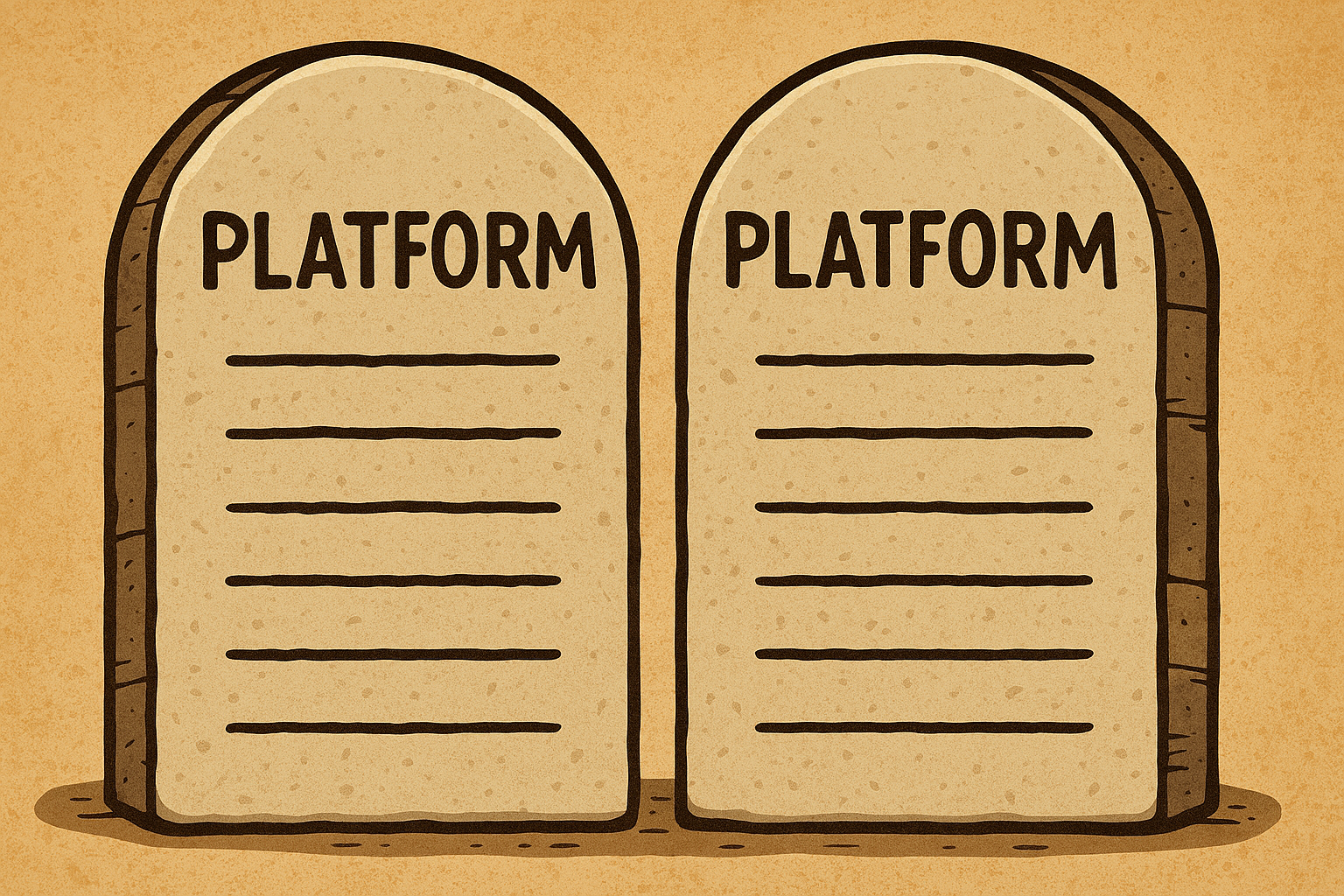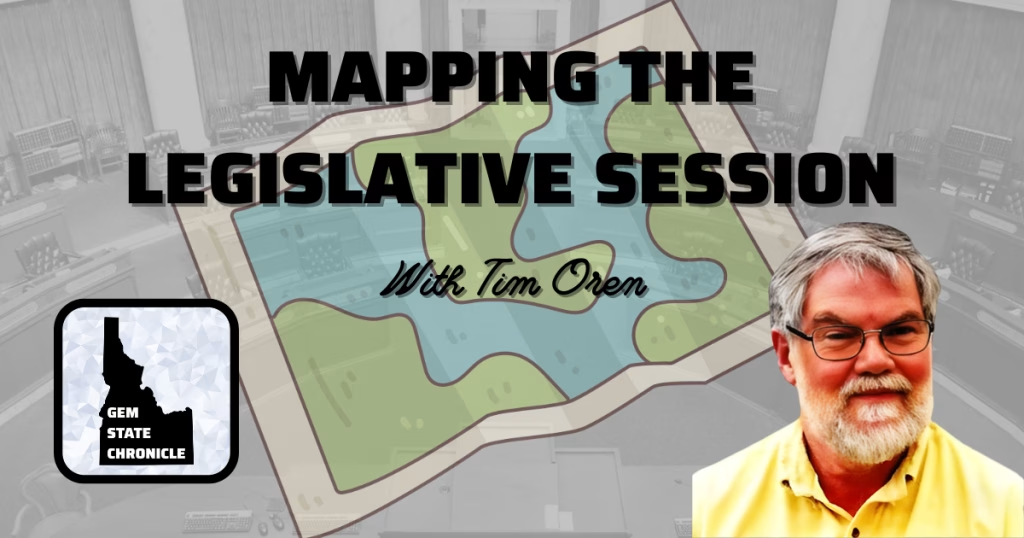What does it mean to be a Republican? Ask ten different people and you’ll likely get at least ten different answers. For some, it means a general belief in conservative principles like low taxes, limited government, and free markets. Others define it by their own top-priority issues—whether that’s abortion, medical freedom, foreign policy, etc.
The Republican Party has grown and evolved significantly since its humble beginnings at the little white schoolhouse in Ripon, Wisconsin, 171 years ago. Since that time, the party has both supported and opposed government subsidies, foreign intervention, abortion, amnesty for illegal aliens, and nearly every form of taxation.
Over the past century, the GOP has been led by figures as diverse as Teddy Roosevelt and Calvin Coolidge, Thomas Dewey and Bob Taft, Nelson Rockefeller and Barry Goldwater, George W. Bush and Ronald Reagan. Today, the party largely follows the lead of Donald Trump, who has rejected once-sacred tenets like interventionism and free trade in favor of a more populist agenda.
Spend some time with conservative Republicans in Idaho, and you’ll very quickly hear the word platform. If you’re not a political veteran, it might sound strange. What is a platform? Why do people speak of it in the same reverent tones as the Constitution or even the Bible?
The purpose of a party platform depends on who you ask:
- Is it a high-level statement of principles?
- Is it a concrete series of policy prescriptions that candidates pledge to accomplish?
- Is it an unimpeachable yardstick for determining who is a real Republican?
Idaho’s Republican platform is relatively long compared to those of other state parties. Many states adopt much more concise documents focused either on broad principles or specific legislative goals, but rarely both. In contrast, many in Idaho want the GOP platform to serve as all three: a mission statement, a legislative blueprint, and a loyalty test. I believe this has led to considerable confusion as we debate what it means to be a true Republican.
It’s an important discussion. Consider that the go-to insult from many conservatives toward those they see as insufficiently committed to the cause is “RINO”—Republican in Name Only.
Just over a year ago, I wrote an article about the 2024 Idaho GOP Platform, comparing and contrasting it with the national GOP platform unveiled by Donald Trump. Take a few minutes to read that post for some background, and then let’s return to that subject today in hopes of bringing clarity to a very murky situation.
In that article, I wrote:
The state party platform is open to modification every two years at the convention, but such modifications are usually small and incremental. With the Integrity in Affiliation form and Article XX of the Idaho GOP rules using the state party platform as the measuring stick for what it means to be a Republican in the Gem State, it’s important that it be clear, unambiguous, and widely agreed upon. I’m not sure our current platform fits that bill, being a pastiche of many different ideas coming from many different people over the course of many years.
Our current platform is a mixture of social conservatism, traditional conservatism, and Ron Paul-style libertarianism, covering both local and national issues. Roughly one-third of the platform deals with matters strictly under federal jurisdiction, which often have little to do with in-state legislation. As much as I appreciate the Idaho GOP calling for repeal of the 16th and 17th Amendments (income taxes and direct election of senators, respectively), I’ve grown skeptical about the value of keeping these federal issues in our state platform.
Take some time to read the current version of the Idaho GOP Platform here:
A couple of years ago, the Institute for Legislative Analysis (ILA) rated Idaho legislators based on how they voted on 42 bills during the most recent legislative session. ILA analyzed these bills according to its interpretation of the Idaho GOP Platform. I created a quiz using those 42 bills so readers could see how they would have scored had they been voting in the House or Senate. Click here to take the quiz and see where you land.
I just retook the quiz for the first time in a year and scored in the 85–90% range, which aligns me with 2024 lawmakers such as Sens. Dan Foreman, Phil Hart, Doug Okuniewicz, Chris Trakel, and Reps. Tina Lambert, Elaine Price, Josh Tanner, Mike Kingsley, Joe Alfieri, Tony Wisniewski, and Julianne Young. I’d call that pretty good company.
Yet I’ve seen claims on social media that lawmakers scoring under 90% on various scorecards (some of more dubious quality than others) are “traitors to the platform.” First, establishing such a narrow threshold heroes and villains is absurd. Second, scorecards are by definition subjective, and will reflect the biases of their authors. That’s fine so long as readers take that into account. Yet it raises the question of how the platform is being be interpreted.
One of my goals with the quiz—besides being a fun exercise to find which lawmakers you most closely resemble—was to demonstrate that there is some subjectivity in interpreting the platform. Some planks are straightforward, such as Article XIV, Section 3, on abortion and the right to life. Others are far more open-ended. Consider Article III, Section 4, on education:
We believe all students are entitled to our support, and to fair and equitable funding and therefore strongly support the adoption of a change to Idaho’s public school funding formula that includes school choice through an education savings account and more evenly distributes state funds while holding our rural schools harmless.
How one defines “fair and equitable funding” is very much in the eye of the beholder.
The ILA rated every spending bill as contrary to the Idaho GOP platform. While I agree that many of those bills expanded the size and scope of government beyond what the platform supports, consider Senate Bill 1456 in 2024. Here is ILA’s analysis:
This bill appropriates over $4.7 billion to the Department of Health and Welfare for the state’s Medicaid system which it expanded under Obamacare. Spending has grown by over 33.8% in the last three years, and this bill would authorize the creation of 24.5 additional full-time positions to expand administrative overhead within the department. Oppose is the position of the Idaho GOP Platform under Article XIII (Health and Welfare) Section 2 Patient Protection and Affordable Care Act “We support the repeal of the Patient Protection and Affordable Healthcare Act in its entirety”.
It’s true that the platform opposes Obamacare, of which Medicaid expansion is a part. However, SB1456 actually reduced Medicaid spending by nearly $300 million. One could argue that the $27 million increase elsewhere in the bill made it worth opposing—and 41 lawmakers did vote no. But another could argue it was a preferable alternative to earlier drafts that spent even more.
Nonetheless, under ILA’s rubric, voting for SB1456 counted as opposing the platform. Simple as.
This illustrates why translating a platform full of broad principles into concrete legislative action often requires judgment. It’s not always a binary yes or no. That’s why I maintain that scorecards should be the beginning of a conversation with your elected representatives, not the end-all, be-all.
It’s not just an academic question, either. Article XX of the Idaho GOP Rules grants county, district, and state committees the authority to censure elected officials who fail to vote in accordance with the platform. A second censure under this rule allows the committee to withdraw party support, potentially barring the official from advertising themselves as a Republican.
Can this provision be applied fairly, or will it inevitably become a political weapon, used by competing factions within the party to target their ideological opponents?
Some form of accountability makes sense. After all, what if Mayor Lauren McLean of Boise decided to register as a Republican and run in our primary? The party should have the right to reject such an obviously disingenuous affiliation. Yet enforcement mechanisms can quickly devolve into tools of factional warfare. In 2024, for example, the Bonneville County GOP censured several legislators over alleged platform violations only to be swept out of office in the May precinct committee elections. Political weapons tend to provoke political backlash.
All that is to say, it’s important to know what the platform says and how various Republicans choose to interpret it.
According to Idaho GOP rules, all Republican candidates are asked to sign an Integrity in Affiliation form stating that they support the platform. Those who sign, sign with exceptions, or decline, are listed on the party’s website. Many Republicans would like to see stronger enforcement of party affiliation, such as prohibiting candidates from running in the GOP primary unless they commit to the platform. Others argue that it should be up to the voters alone to decide who qualifies as a Republican.
Signing with exceptions is perfectly legitimate. Many lawmakers with strong conservative records have listed exceptions, including Rep. Cornel Rasor and Sen. Brian Lenney. Some believe the platform doesn’t go far enough in certain areas. You can visit the site to see how your elected officials responded.
One frequent sticking point is the platform’s abolitionist stance on abortion, which includes no exceptions for rape or incest. Pro-life conservatives are deeply divided on this issue, which accounts for less than 1% of abortions in the U.S. It’s definitely worth having the debate, but I would caution against using it as a reason to excommunicate anyone from the party. I am personally comfortable with our platform’s hardline stance—abortion is murder no matter the circumstances. However, I know many good conservatives who support exceptions.
In 2024, candidates in Legislative District 15—Sen. Codi Galloway, Rep. Dori Healey, and Annette Tipton—declined to sign the form, instead submitting this joint statement:
We are Republicans who choose to affiliate with the Republican Party. The enduring core values of the Party best represent our vision of America and our mission in Idaho. The Idaho Republican Party Platform spans over 30 pages, and the National Party Platform extends over 60 pages. Given the extensive nature of both documents, it would be unreasonable for us to pledge strict allegiance to such an expansive and in-depth document. Instead, we choose to attach our signature to the following Republican values:
• Limited government
• Low taxes
• Individual freedom
• Defending the 2nd amendment
• Family values
• Promoting free enterprise
• Fiscal responsibility
• Choice in education
• Affirming the right to life
• Transparency in government
We hold a profound love for our nation, a steadfast commitment to upholding our constitution, and an unwavering devotion to our families. We acknowledge that the prosperity we enjoy today is a testament to the hard work and dedication of previous generations of Republicans. We pledge to honor their legacy by carrying forward their ideals with integrity, passion, and pride.
What do you think? Is such a statement sufficient? Should the platform be simplified into a general values document like this rather than a 20-page treatise?
Rep. Barbara Ehardt, on her Integrity form, took time to dissect platform language in detail. She made some fascinating points about the text of the platform, too many to include here, and clearly spent a lot of time mulling over its ideas. Just as one example, she pointed to this line from the preamble:
- We believe the most effective, reasonable, responsive government is government closet to the people, and the sovereignty of the state must be protected. That government which is best that governs least.
This “we believe” needs clarification. Colleagues continue to misunderstand this in purporting to advocate for the city or local governments being preeminent. This is not the intent of our founders. The people created the State, the State created the Federal Government, and the State created the counties and cities. It’s about the “state.” I believe this should be clarified.
Consider recent legislation passed by the Idaho Legislature that reins in local governments:
- Banning ideological flags on public property
- Capping property tax increases
- Restricting local land use regulations
- Preempting local minimum wage laws
- Banning mask mandates
I tend to agree with these sorts of bills that protect the rights of citizens from overreaching local government, yet as Rep. Ehardt pointed out, they could be interpreted as contrary to the Idaho GOP Platform. Not all governments are alike in scope or authority. As Ehardt explained, counties and cities are creations of the state, and so the state remains preeminent. Our platform should reflect that.
The biggest issue with placing the platform on a pedestal—as the ideal against which all Republicans should be judged—is that it changes every two years. I was privileged to serve as secretary for the Platform Committee at the 2024 Idaho GOP Convention in Coeur d’Alene, so I got to see a bit of the sausage being made. New planks—and amendments to old planks—were fiercely debated, and in the end the convention adopted a final platform.
That platform will change again in 2026, and again in 2028, and who knows what it might say by then. The moderate wing of the party could see a resurgence in influence over the next few years (though I hope not!) and might rewrite the platform from that perspective. Would conservatives still preach adherence to a much less conservative platform?
There’s also the awkwardness of asking candidates to pledge support for a platform that may soon be obsolete. The primary election is held in May, while the convention that adopts the new platform usually takes place in June. That means the version adopted heading into the general election could be different from the one candidates signed before the primary.
In Idaho, any delegate to the convention can propose amendments to the platform. These proposals are first debated and voted on by the Platform Committee, then by the full convention. This process differs from other states, some of which only amend their platforms every four years, or limit changes to those vetted by an executive committee. Some states include Republican nominees in the process, while others simply adopt the platform produced at the Republican National Convention.
What do you think? Should the Idaho GOP adopt a more concise platform focused on broad principles, or should it continue to lay out specific policy prescriptions? Should Republican nominees have more input into the platform they’re asked to support? Should the platform focus more narrowly on state issues, or continue weighing in on federal policies and national debates? How strictly should Republican candidates be judged? If the platform changes during a campaign, to which version should candidates be held?
We have just under a year before the 2026 Idaho GOP State Convention, when delegates will once again consider changes to the platform. Rather than treating the platform as if it were etched in stone and handed down by Almighty God, we should remember that it is a living document, growing and evolving every two years as Republicans debate the issues of the day. It’s not too early to engage in that debate now, helping define what it means to be a Republican as we head into the mid-21st century.
Gem State Chronicle is a reader-supported publication. To receive new posts and support my work, consider becoming a free or paid subscriber.
About Brian Almon
Brian Almon is the Editor of the Gem State Chronicle. He also serves as Chairman of the District 14 Republican Party and is a trustee of the Eagle Public Library Board. He lives with his wife and five children in Eagle.













